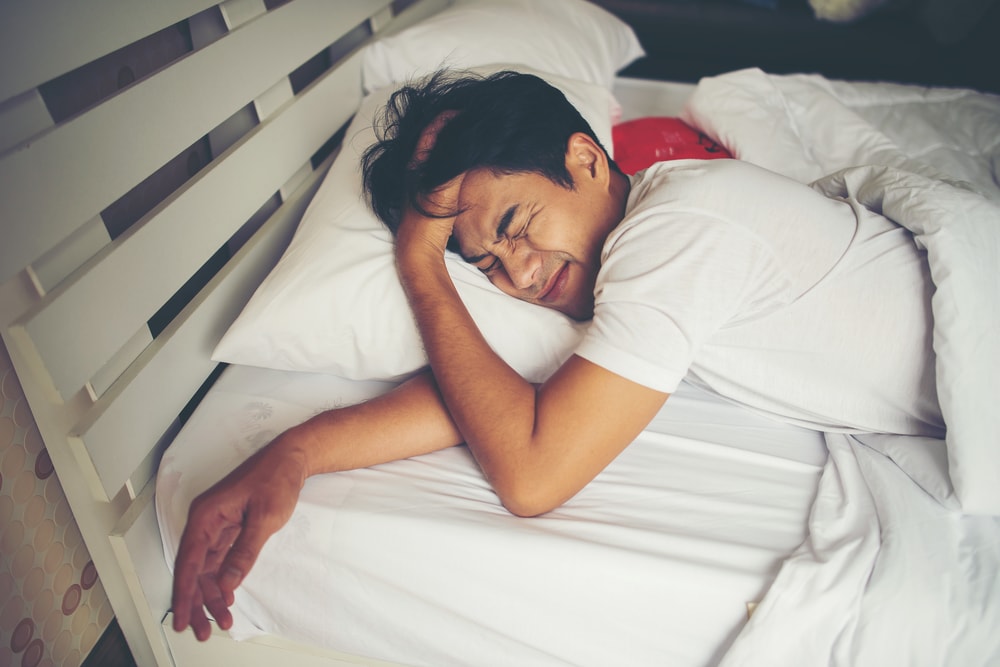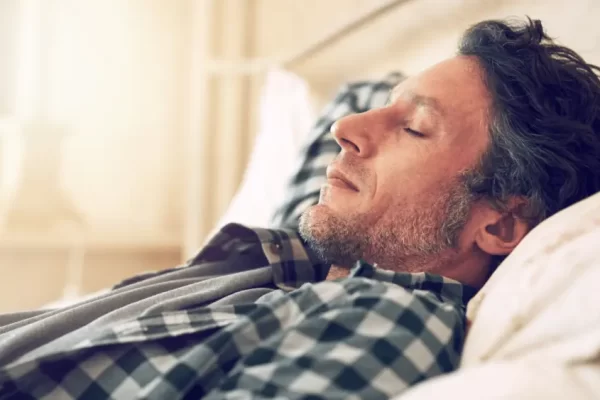We have heard of Sleep Paralysis more often and the hallucinations associated with it. People normally mistook it as a sign of some paranormal or supernatural occurrence when they are just the tricks our mind plays with us.
The condition seems very strange, but it has the probability to be experienced by an individual once in his lifetime. The way our body and mind works while we sleep has a different kind of mechanism. Sleep paralysis is almost an inability of the body to co-ordinate with the brain appropriately.
Sleep paralysis is almost the situation wherein the body of an individual is unable to move neither while he is sleeping nor while be suddenly awakes from his/her sleep. The person at this particular period feels that his mind is awake, but there is constant pressure on him, which makes him feel choked.
Sleep paralysis is not fatal, but the accompanying hallucinations and feelings of being attached could make a person anxious and unable to sleep peacefully. Sleep paralysis often becomes one of the reasons for a sleep disorder.
A rarely known fact about sleep paralysis is its occurrence majorly during the adolescent phase. It is a parasomnia that could only be witnesses while one is sleeping. The chances are that it generally happens between sleeping and waking tenure in the morning. Sleep paralysis is more like that state of mind and body when it is in flux between whether to sleep or wake up, which makes it difficult for your motor abilities to function correctly for a brief moment.
After several careful observations and evaluation, experts believe that these hypnagogic experiences, which involve several sensory perceptions, these episodes of sleep paralysis are segregated categorically into three stages:
- Intruder: It begins with a sudden feeling and hearing of voices of the doorknob rattling, footstep approaching towards you, visibility of a shadow man coming at you, and the feel of an unknown threatening presence around you.
- Incubus: This phase is more severe and makes you feel anxious as it feels like someone is sitting on your chest, pressing you harder and then trying to strangle you, or you may feel to be assaulted by someone. The individual might feel his/her death approaching him.
- Vestibular-motor: This stage seems more like a paranormal experience as one might visualize himself floating or someone else. The person might feel spinning around, and an out-of-body experience seems familiar in a few cases.
These three categories are differentiated, keeping in mind and observing that sleep paralysis occurs differently to different people, and these three stages are the most common experiences observed in people.
What are the definite causes and signs of it?
When we sleep, our brain travels through five different stages of sleep, the first being REM (Rapid Eye movement) sleep cycle, and the other is NREM (Non-Rapid eye movement). During the first 90 minutes of our sleep, the brain passes through the REM Sleep cycle, and all the dreams occur during the same hour.
The rest hour while we sleep and our voluntary muscles relax along with our brain, we are in the NREM sleep phase. Rapid Eye Movement makes sure that we do not act out in our dream, and the people who suffer from REM sleep cycle disorder tend to act out when they are dreaming.
When one is experiencing sleep paralysis, the REM cycle is disrupted in a person, and our consciousness is as active as when we are involved. Still, the body does not function according to the consciousness because, as it is natural, while we sleep, our voluntary muscles are at rest. Hence, this seems more like a paralytic attack as our body cannot move.
During sleep paralysis, the body may have transitioned from the REM state, but the brain is out of sync with the body. Therefore, there seem hallucinations and other sensory perceptions and feelings. It happens so because the part of our brain which reflects on threat and danger around us is excessively sensitive and would begin to feel footsteps approaching, doorknob rattling, pressure on the chest, a shadowy figure, etc.
Although there have been certain factors associated with the occurrence of sleep paralysis, which is inclusive of:
- Any family history of sleep paralysis
- Overwhelming daytime drowsiness (Narcolepsy)
- The feeling of Jet Lagged (irregular sleep patterns)
Sleep Paralysis can be a sign of a few health disorders such as anxiety, migraines, or clinical depression. But some other signs and symptoms include:
- The obvious sign when one is unable to move his/her body during the sleep or while being awake completely.
- When it occurs, one cannot speak or shout as a matter of fact.
- Hallucinations and visions which makes you feel paranoid and anxious
- Near-death feeling and experience
- Difficulty breathing and pressure on the chest
- Muscle and back pain
- Even the non-significant sounds and voices become alarmingly significant to the brain and a potential signal towards the threat.
The Diagnosis and Better Sleeping Tricks
Generally, sleep paralysis isn’t medically diagnosed, but individual cases are extreme and require immediate medical attention. It is unusual that a person has an often encounter with sleep paralysis and is fearful of going to sleep, but in such a case, one should consult with an expert.
Maybe anxiety to fall asleep or a sudden urge to sleep the entire day could be another reason you talk with a medical professional. But if one tries to eliminate stress and anxiety, all the symptoms connected with sleep paralysis might disappear.
Hence, the best way to eliminate sleep paralysis would be stress management and maintaining the sleep cycle. Some other tricks could be:
- One method is changing the lights at your home, which means exposing yourself less to bright lights during the evening and switch the glow of your bathroom to something dim.
- Try to expose yourself to natural daylight during the daytime.
- Try not to sleep after 3:00 pm during the day or longer than 2 hours.
- Stick to your bed-time and waking p time
- Try not eating anything heavy during the evening or within 2 hours of going to bed.
- Switch off the lights of the television and the room before going to sleep.
- keep your phone outside your bedroom while going to sleep
- Do not consume alcohol or caffeine before going to sleep.
- Try to calm your body and mind during your bed-time by reading books or listening to soothing music.
- Try not to work or study inside your bedroom during your sleep hours.
- Practice meditation or Yoga.
- Managing depression or anxiety disorder.
All these methods could help in sleeping better. Still, at the same time, understanding sleep mechanisms can always help analyze your sleep habits and maybe become the reason to reduce episodes like sleep paralysis.




